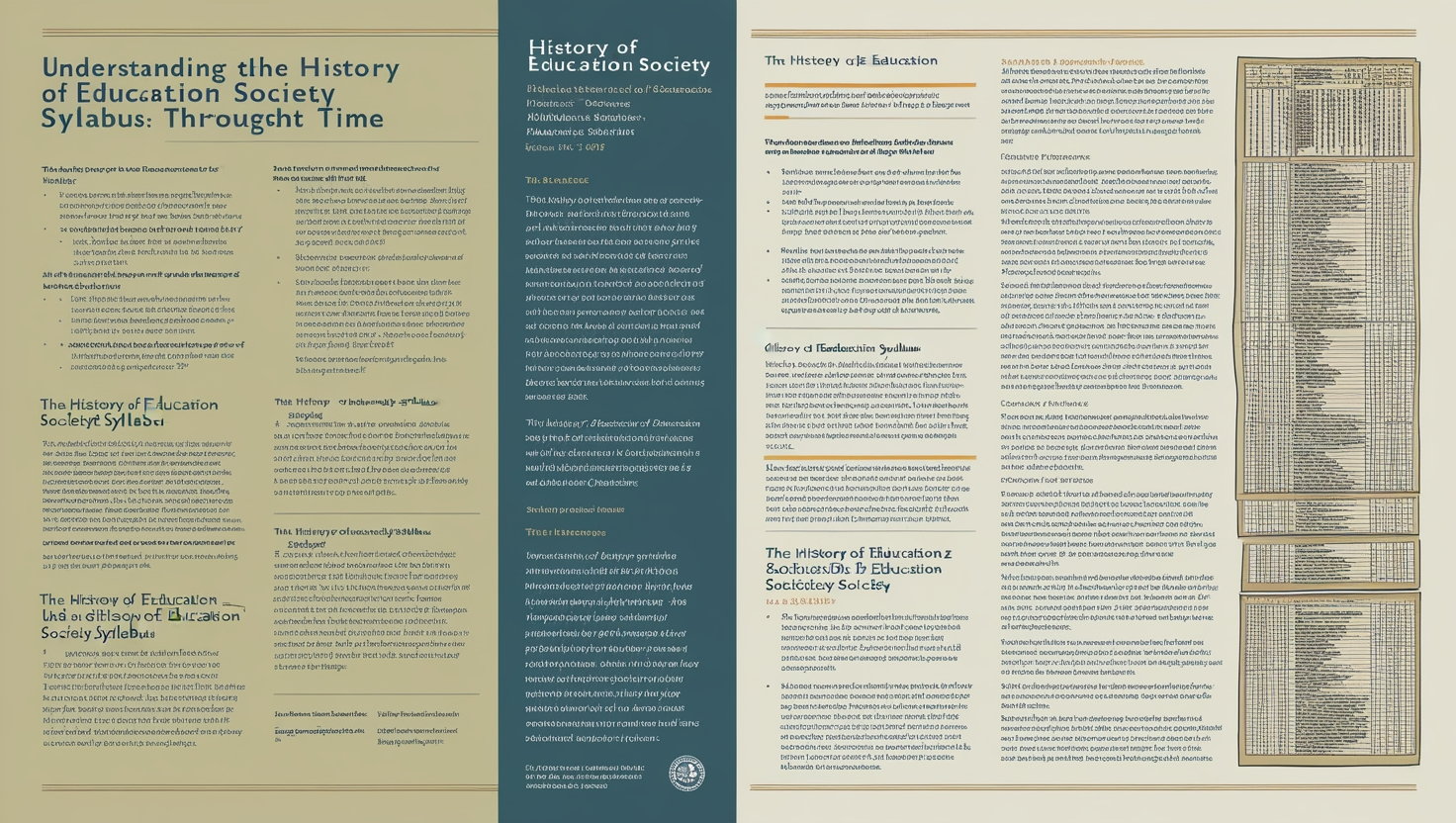
The history of education society syllabus plays a pivotal role in shaping our understanding of how education has evolved over centuries. This syllabus, often used in academic and professional circles, guides exploring the rich tapestry of educational development across cultures, periods, and social structures. By delving into the history of Education Society syllabus, students and researchers gain a broader perspective on the philosophies, policies, and practices that have defined education throughout history.
The Importance of Studying the History of Education
Education is a cornerstone of civilization, and understanding its history allows us to appreciate humanity’s journey to achieve modern educational systems. The History of Education Society syllabus provides a comprehensive roadmap for examining this journey. It chronicles significant milestones in education and highlights the socio-political, economic, and cultural influences that have shaped educational practices over time.
Studying the history of education society syllabus fosters critical thinking, helping learners draw connections between past and present challenges. By understanding historical contexts, educators and policymakers can make informed decisions about the future of education.
Origins of the History of Education Society
The History of Education Society was established to promote research and discussion on the history of education. The society’s syllabus reflects this mission by offering a structured approach to studying diverse educational traditions and practices. Covering topics such as ancient pedagogical methods, the evolution of formal schooling, and the impact of major educational reforms, the syllabus serves as a bridge between historical inquiry and contemporary educational challenges.
One key objective of the syllabus is to ensure that students appreciate the global nature of educational history. By exploring different cultures and periods, learners can better understand the universal quest for knowledge and its role in societal progress.
Key Themes in the History of Education Society Syllabus
The History of Education Society syllabus addresses many themes, each shedding light on a particular aspect of educational history. Among the core themes are the philosophical foundations of education, which trace the ideas of great thinkers such as Plato, Confucius, and John Dewey. These philosophies continue to influence modern education, underscoring the enduring relevance of historical perspectives.
Another significant theme is the evolution of formal education systems. The syllabus explores how schools, universities, and vocational institutions developed, responding to societal needs and technological advancements. It also examines the role of religious institutions in shaping early education, particularly during the medieval period.
Social equity and access to education form another critical focus area within the history of education society syllabus. Topics such as the fight for universal education, gender equality, and the inclusion of marginalized groups are studied to understand the ongoing struggle for equal opportunities in education.
Educational Reforms and Policies
The History of Education Society syllabus provides an in-depth look at landmark educational reforms and policies. From the establishment of public schooling in the 19th century to the desegregation movements of the 20th century, these reforms have profoundly impacted society.
For instance, the syllabus often highlights the significance of the Industrial Revolution in shaping modern education. As economies shifted from agrarian to industrial, the need for a skilled workforce led to the development of standardized curricula and compulsory education laws. The history of education society syllabus explores these transitions in detail, providing a nuanced understanding of how education adapts to societal changes.
The Role of Technology in Education History
Technology has always been a driving force in the evolution of education, and the History of Education Society syllabus dedicates considerable attention to this aspect. Technological advancements have continuously reshaped educational practices, from the invention of the printing press to the rise of digital learning platforms.
The syllabus examines pivotal moments such as introducing blackboards in classrooms, using film and television for educational purposes, and the recent surge in online education. By studying these developments, learners gain insights into the transformative power of technology in education.
Cultural and Regional Perspectives
One of the strengths of the History of Education Society syllabus is its emphasis on diverse cultural and regional perspectives. Education systems worldwide have evolved uniquely, influenced by local customs, traditions, and philosophies. The syllabus encourages comparative studies, allowing students to explore how different societies have approached the challenges of teaching and learning.
For example, the syllabus might include a comparison of ancient Indian Gurukuls with Greek academies or analyze education systems alongside colonial models. This global perspective enriches the study of educational history, fostering a deeper appreciation for the diversity of human experiences.
Challenges and Controversies in Educational History
The History of Education Society syllabus does not shy away from addressing the challenges and controversies that have shaped education. Topics such as the exclusion of certain groups from formal education, the misuse of education for propaganda, and the ethical dilemmas surrounding standardized testing are critically examined.
The syllabus confronts these issues, helping learners develop a balanced and informed perspective on the complexities of education. It also reminds learners that progress in education often comes through struggle and perseverance.
Practical Applications of the Syllabus
The insights gained from studying the history of education society syllabus have practical applications in various fields. Educators can use historical knowledge to design inclusive and culturally sensitive curricula, and policymakers can draw lessons from past reforms to create policies that address contemporary challenges.
For researchers, the syllabus serves as a foundation for exploring new areas of inquiry, such as globalization’s impact on education or artificial intelligence’s role in shaping future educational practices. The history of the education society syllabus thus catalyzes ongoing innovation and improvement in education.
The Future of the History of Education Society Syllabus
As the world continues to change, so will the focus of the history of education society syllabus. Emerging trends such as climate change education, the integration of artificial intelligence, and the emphasis on lifelong learning are likely to feature prominently in future iterations of the syllabus.
By adapting to these changes, the History of Education Society ensures its syllabus remains relevant and valuable for future generations. The ongoing commitment to exploring the past while addressing present and future challenges underscores the importance of the history of education society syllabus in advancing educational knowledge and practice.
Conclusion
The History of Education Society syllabus is more than just a curriculum; it is a comprehensive guide to understanding the intricate tapestry of educational history. The syllabus provides learners with a holistic view of how education has evolved by exploring philosophical foundations, technological advancements, and social equity.
Through its global perspective and critical approach, the syllabus fosters a deeper appreciation for the role of education in shaping societies. Whether you are an educator, policymaker, researcher, or student, engaging with the history of education society syllabus offers valuable insights and inspires a commitment to improving education for future generations.
The journey through the history of the education society syllabus is one of discovery, reflection, and inspiration. It reminds us that the story of education is a shared human endeavor rooted in the desire to learn, grow, and create a better world for all.


